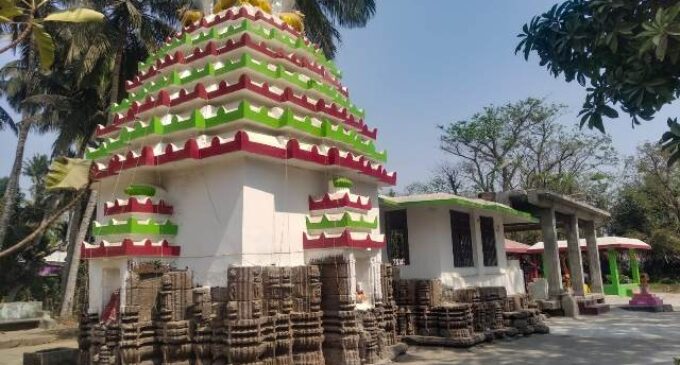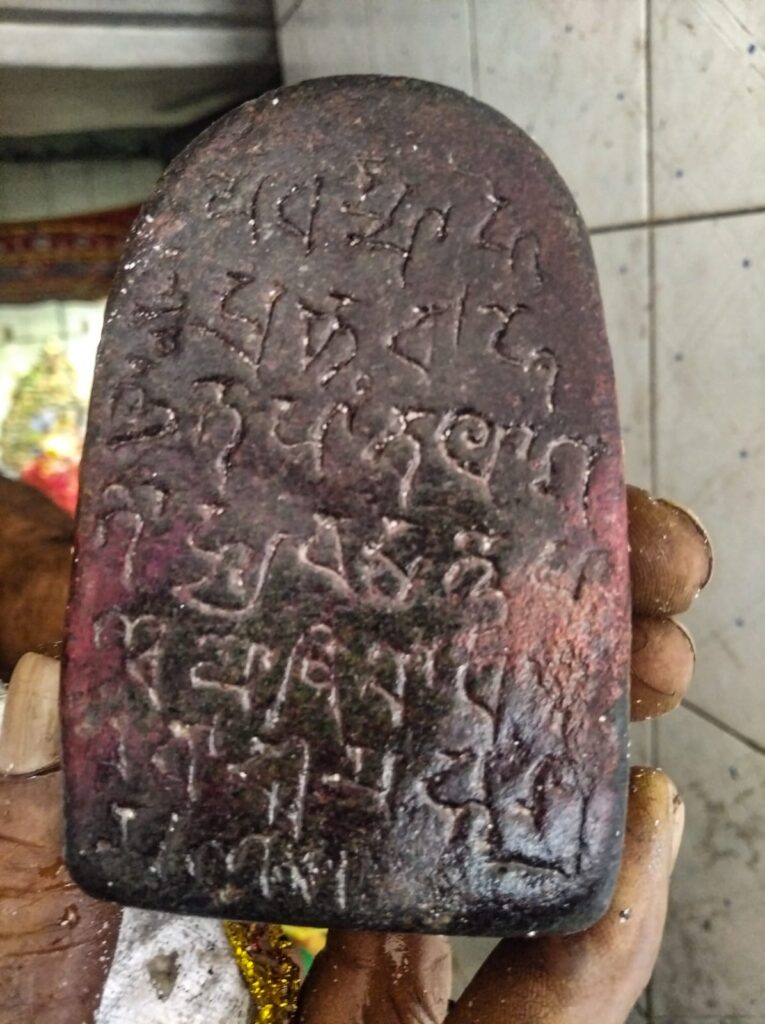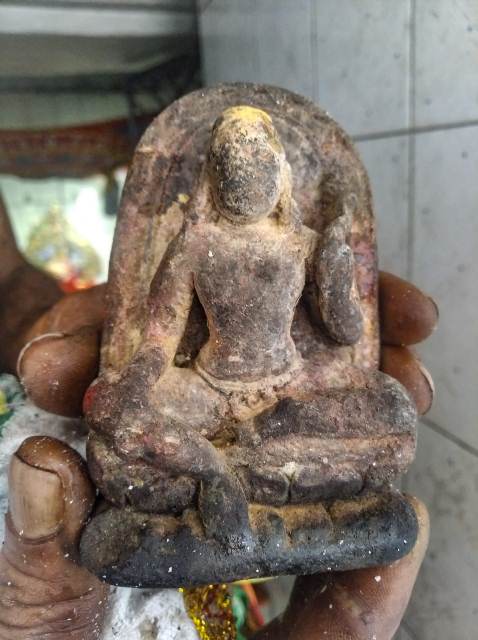“Ancient inscribed Avalokitasvara image discovered in Daya River Valley”

By Our Correspondent
Bhubaneswar May 22: An ancient miniature inscribed image of Avalokitasvara Padmapani, a god of the Buddhist pantheon, has been found and documented by team members of INTACH Odisha in Bageswarpur Village in Pipili Block of Puri District recently. The small statue, which has an eroded figure of Avalokitasvara, is nearly 10 inches in height, and has seven lines of inscriptions inscribed in the rear. The name Avalokitasvara means “the Lord who looks down with compassion.”
The image was found in the Garbhagriha of the Rameswar Shiva Temple of Bageswarpur village. It has been kept in the Singhasan of the sanctum sanctorum of the temple along with other deities and has been worshipped as Dhyani Mahadeva since ages. The priest of the temple has kept it safely for years. The present-day temple of Rameswar Mahadeva has an antiquity dating back to the 8th/9th Century CE, when Buddhism flourished in the region. The temple has many intricate stone carvings on its outer walls, some with Buddhist iconography. The INTACH team took an estampage of the statue for deciphering the script.
According to Deepak Kumar Nayak, who first recognised the small statuette, the inscription is in Sanskrit with the Nagari Script. It is actually a portion of ‘Vinaya Pitaka’ which is the first of the three divisions of ‘Tripitaka’, the ancient Buddhist sacred scriptures. The inscription was deciphered as: ‘Ye Dharma Hetu Prabhab Hetu, Teshantathagato Hyabada Teshascha, Yo Nirodha Ebam Vadi Mahashramanah’. Translated it means: ‘Tathagata has told about Dharma (deeds), its cause and effects and how to negate them, as mentioned by Mahashramanas’. Depending upon the script, it can be dated somewhere close to 8th/9th Century CE, a period when the Bhaumakaras held sway over the region. Many of the rulers of this dynasty are known to have adopted Buddhism.
The four member INTACH team, comprising of Anil Dhir, Biswajit Mohanty, Deepak Kumar Nayak and Bishnu Mohan Adhikari have been surveying the monuments of the Daya and Ratnachira river valleys since the last one year and have made many discoveries. Earlier, INTACH has completed a comprehensive survey of the heritage of the Prachi and the Mahanadi Valleys too. According to Anil Dhir, who is leading this exploration, such inscribed stone images of Avalokitasvara have been found in the Ratnagiri and Udayagiri sites too, many of them terracotta tablets, but this stone carved image is a rarity. The present find is one where the inscription is clear and not eroded.
According to Dhir, the early river valley civilizations, spread all over the State, have rich archaeological heritage. These river valleys civilizations were formed when early man began to move from a hunting and gathering existence to an agrarian one. Instead of a nomadic living, they settled around the river valleys, as it was easy to grow crops for themselves and their animals. These ancient river civilizations set the foundation for later civilizations, leading to modern civilizations. Odisha abounds in such river valley civilizations and proper archaeological and heritage studies should be undertaken.
INTACH has written to the Odisha State Museum to take an estampage of this inscription and keep a replica of the same in the Lalitgiri Museum.








